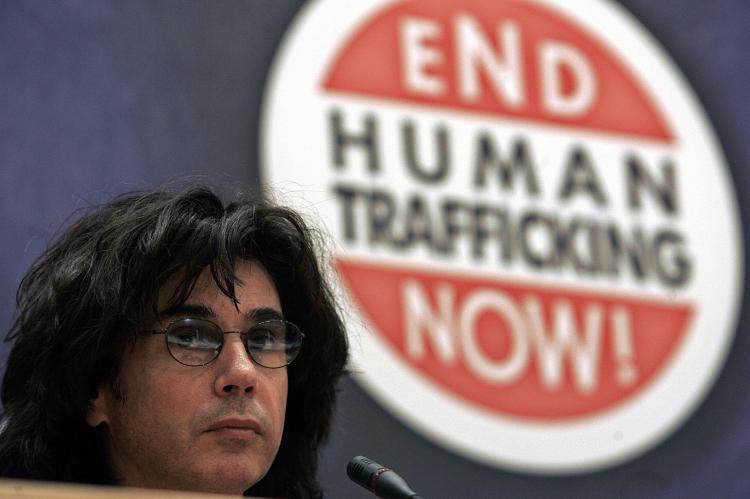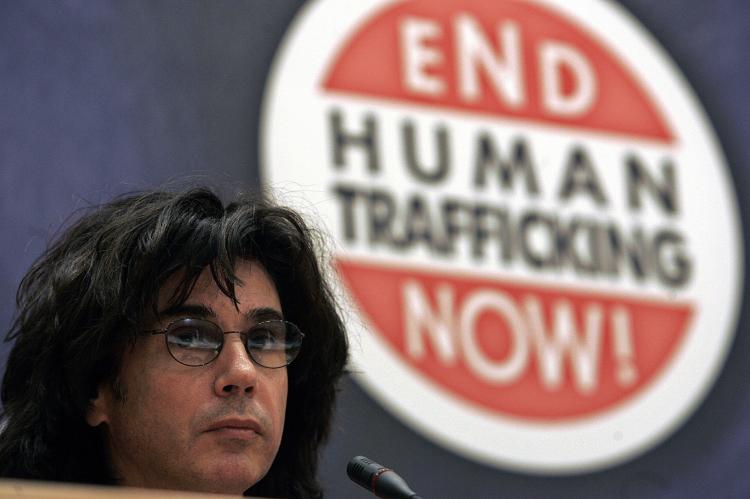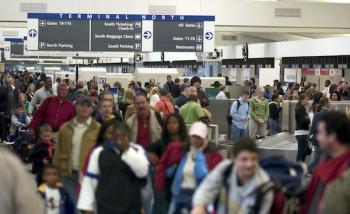The current scale of human trafficking outweighs the smuggling and spreading of drugs, according to a recent report by the European Commission (EC). The Commission is the executive branch of the European Union (EU).
1.2 million people globally become victims of human trafficking every year, according to estimates provided by the United Nations Children’s Fund (UNICEF). Most of the victims are women and children used for cheap labor and sexual services by organized multinational criminal groups, warns the EC.
The report also says that well-organized criminal conglomerates generate great profit from human trafficking and develop money-laundering schemes. The number of these criminal groups has mushroomed in the past several years. In response, the EC called on the countries in Europe to make tougher laws to tackle the illegal trafficking of people across their borders.
Tougher Laws by the EU
Last month, the EC adopted new proposals to strengthen the efforts to fight against human trafficking and the sexual abuse of children.
The new proposals intend to update the current statutes and bring them to the highest European standards. They will provide better protection and care for victims, and stricter sanctions against trafficking.
Prosecuting criminals, protecting victims, and preventing offenses are the three areas that EU member states will be obliged to act upon and translate into national legislations if the proposals are approved.
As stated in the proposals, criminal offenders being brought to justice even if the crimes are committed abroad will be emphasized. Police will be allowed to use similar tools and techniques as used against organized criminals, such as phone-tapping and eavesdropping.
Accommodations and medical care will become standard aid for victims. Police protections will be provided, if necessary, to help the victims recover from their ordeal, make them feel safer, and eliminate fear of testifying against their perpetrators in court, essential for successful legal proceedings. For the purpose of claiming financial compensation and punitive damages, victims will be entitled to free legal representation.
The proposals further encourage member states to scrutinize the clients who buy the sexual services of victims. Such clients may be sanctioned under new laws, as well as the employers who exploit trafficked people. Independent bodies will be put in place to monitor the implementation and development of these actions.
“We want to build an EU that is truly able to protect the most vulnerable citizens against the most terrible crimes,” said the Vice President of the EC responsible for Justice, Freedom and Security, Jacques Barrot in a statement. “Our message is clear. These crimes which know no borders are unacceptable. Europe will continue to set the highest and most ambitious standards in fighting them.”
Innocent Victims Lured In
It is estimated that the number of people trafficked into and within Europe is several hundred thousand. According to the International Labor Organization, out of the total global number of people trafficked, 43 percent of the victims are exploited for prostitution and 32 percent for labor. Regarding sexual exploitation for commercial purposes, 98 percent of the victims are women and girls.
Trafficking typically starts with an ad in a local newspaper offering a job in a western European country by an employment agency. Young women are preferred as they are offered jobs as waitresses in bars or in allegedly prestigious night clubs. A meeting is scheduled between the potential candidate and the hiring agency, the job details are quickly finalized, and the young women are offered salaries that they cannot possibly earn in their native countries.
Especially vulnerable are people from post-communist states in Central and Eastern Europe, where it is estimated by experts that traffickers earn millions of Euros from the trade of humans.
With the fall of communist regimes in Central and Eastern Europe, many states were economically devastated by the lack of market economy. And while some of these countries in central Europe were able to achieve a level of development, for decades other post-communist economies continued the struggle to recover with inflation, corruption, and high rates of unemployment.
People from developing countries like Moldova and Bulgaria are especially vulnerable to human trafficking. Both countries are considered among the poorest in Europe, with job opportunities hard to come by.
According to Moldova’s state statistic agency, 25 percent of young working Moldovans are employed abroad, and the average monthly domestic salary is $130. According to the Bulgarian National Statistical Institute, though Bulgaria’s average salary is slightly higher at $440, labor migration numbers have reached 1 million out of a total population of 7.5 million.
“Bulgaria is contributing to the trafficking of people and unfortunately was unable to counteract sufficiently,” admitted the chief of the Bulgarian National Investigation Service Boiko Naydenov during a press conference on human trafficking in the Bulgarian capital Sofia on April 7.
At the press conference, the non-governmental and not-for-profit public policy institute RiskMonitor presented a report on the organized crime dealing with trafficking of people.
The report states that criminals won about 1.3 billion Euros as over 10 000 people each year become victims of trafficking in Bulgaria.
“Bulgaria has not done enough in the fight against the legalization of funds from this type of criminal activity,” said U.S. Deputy Ambassador to Bulgaria Alexander Karayanis. According to him, although the authorities lag behind in their work against these criminals, there is some progress in this area.
“Over 80 percent of Bulgarians have no trust in the judicial system and believe that it is dependent on political and business formations. This distorts people’s understanding of fair trial,” said Karayanis. He recommended that the Bulgarian authorities implement concrete steps to combat human trafficking. For example, through comprehensive reporting of cash transactions of more than $ 20,000 as well as cooperation between the involved institutions and banks.
The Bulgarian Deputy Internal Minister Rumen Andreev, stated at the press event that the combat of trafficking in human beings is not the expected level.
Experts cannot make accurate estimates for the profit of human trafficking, but the amount is considerable. According to the Department of Migration to the State National Security Agency (Bulgarian FBI) in Germany alone in 2008 there were 500 cases registered with more than 800 victims of trafficking.





